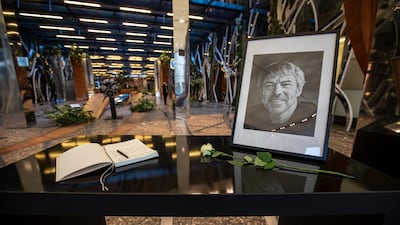A helicopter crash ferrying skiers to a remote ridge near Alaska’s Knik Glacier last month ended the life of the Czech Republic’s richest man, Petr Kellner. It also set in motion the biggest wealth transfer of the post-Soviet Union bloc.
At stake is a fortune valued at $15.7 billion by the Bloomberg Billionaires Index and the leadership of PPF Group NV, a conglomerate with €44bn ($52bn) of assets as of June, of which he controlled 99 per cent.
While the 56-year-old entrepreneur’s widow and four children stand to inherit his wealth, succession arrangements are unclear. On the business side, minority shareholder Ladislav Bartonicek will manage the firm’s operations as his family didn’t play an important role in PPF’s day-to-day operations.
“As organised as Petr Kellner had to be, I’m sure he took care of everything to make the process as simple as possible,” said Petr Kincl, an associate partner at PWC Legal, which represents local and international clients. “Usually, the whole transfer takes a few months, and I don’t see why this would take more than a year.”
While Mr Kellner was instrumental in negotiating some of PPF’s past deals, the group will be able to carry on without its founder, according to Jean-Pascal Duvieusart, a minority shareholder and chief executive officer of PPF’s financial arm, Home Credit Group. Analysts at Ceska Sporitelna and J&T Banka have said they expect no immediate impact.
Critical Time
“Petr had put in place a governance relying on a large team of very senior professionals and a structure where a lot of the responsibility is within individual companies,” Mr Duvieusart said.
Mr Kellner was among five people killed in the March 27 crash of the Airbus AS350 B3 chopper that went down about 50 miles northeast of Anchorage. The copter slid 244 to 274 meters down the snow-covered mountain before coming to rest, investigators said. An avid snowboarder and kite surfer, Mr Kellner had been on vacation at a remote luxury lodge.
His death comes at a critical time as PPF is trying to take over Prague-traded Moneta Money Bank and weighing a potential sale of a minority stake in its Cetin Group telecommunication-infrastructure unit.
PPF chief financial officer Katerina Jiraskova said she expects the Moneta merger to move forward and that the group is sorting out ownership technicalities, according to Czech daily Hospodarske Noviny. She doesn’t see family members joining PPF immediately, though they are entitled to it if they wish.
The group is recovering from coronavirus-related losses suffered by its Home Credit unit. Its consumer lender in Asia and eastern Europe returned to moderate profits in the second half of 2020 after booking record loan impairments in the first six months of the year. The other main leg of Mr Kellner’s sprawling business empire, telecoms in central and eastern Europe, has been relatively unaffected by the pandemic.
Photocopier Salesman
Born in 1964 in what was then Czechoslovakia, Mr Kellner studied economics and worked as a salesman for Ricoh photocopiers shortly after the Communist Party fell in the 1989 Velvet Revolution. His life changed when the newly capitalist state started selling assets by handing out vouchers exchangeable for shares in companies. Mr Kellner took advantage of it with some partners and set up a fund in 1991 that acquired stakes in 202 firms. That later became PPF.
The firm’s operations now span finance, telecoms, manufacturing, media and biotech. Its Home Credit, started in 1997, is one of the largest consumer lenders in central and eastern Europe and has expanded into countries including China, India and Indonesia. Mr Kellner’s business in China has sparked some controversy at home as the domestic intelligence agency include the Asian country among the biggest national security threats
After falling to a low of $8.6bn last May at the outset of the pandemic, his fortune surged amid a rebound in banking and rising telecoms stocks. With his wife Renata, he had founded the Kellner Family Foundation, which donates to educational, cultural and health causes.
“Above all, he was very, very family-bound,” Mr Duvieusart said. “He spent a lot of time with his family and he loved each of his kids.”
The transfer of Mr Kellner’s wealth could be made easier by the fact that his wide business network operating in different industries and regions is all united under the holding structure of PPF, according to PWC Legal’s Kinc.
“The handling of such great inheritance doesn’t have to be much different to handling a case of some mid-sized businessman who had a company abroad, and a few villas in Spain or Florida,” Mr Kincl said.

